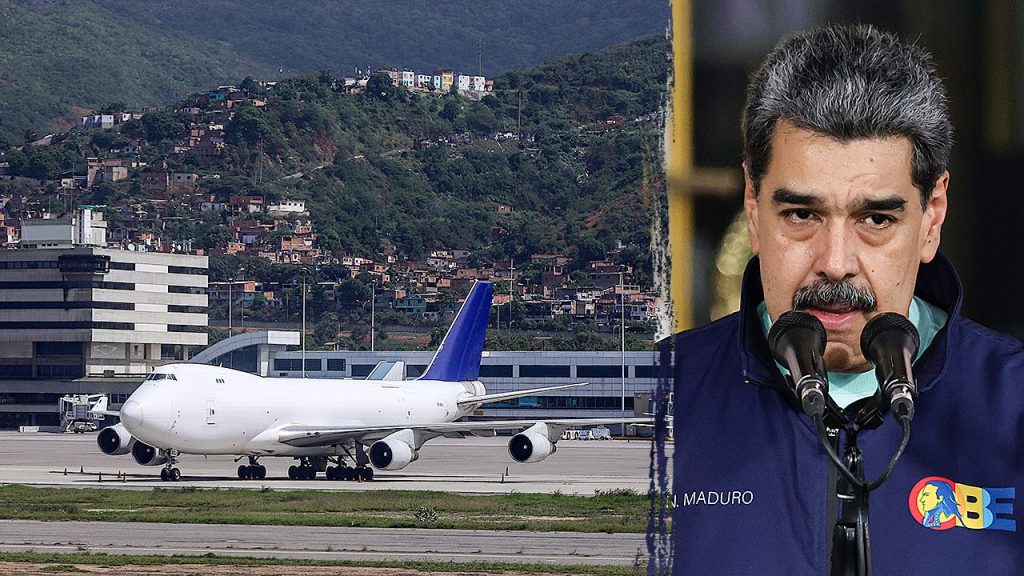Major Airlines Halt Venezuela Flights Amid U.S. Security Warnings
In a significant disruption to international travel, several major airlines have suspended flights to and from Venezuela following U.S. aviation safety warnings. This transportation crisis comes at a time when the Trump administration is intensifying pressure on Venezuelan President Nicolás Maduro’s government. Brazil’s Gol, Colombia’s Avianca, and TAP Air Portugal were among the first carriers to cancel their Caracas departures over the weekend, with the ripple effects quickly spreading to other international airlines operating in the region. The travel disruption has extended beyond Latin America to impact connections with Europe and the United Kingdom, leaving travelers scrambling for alternatives and raising concerns about Venezuela’s increasing isolation from global air networks.
The flight cancellations coincide with the U.S. administration’s decision to designate the Venezuelan group Cartel de los Soles as a foreign terrorist organization. This network of government and military officials allegedly engaged in drug trafficking has been cited by Secretary of State Marco Rubio as being “responsible for terrorist violence throughout our hemisphere as well as for trafficking drugs into the United States and Europe.” TAP Air Portugal directly referenced U.S. security advisories in its decision to halt services, stating that safety could no longer be guaranteed for its operations. Spanish carrier Iberia announced it would suspend Caracas flights “until further notice” beginning Monday, though it maintained its Saturday connection to Madrid. While some regional airlines like Copa and Wingo continued operations, others like LATAM canceled specific routes, creating a patchwork of availability that has complicated travel planning for those needing to enter or leave Venezuela.
The airline industry’s response followed a November 22 warning from the U.S. Federal Aviation Administration, which urged carriers to “exercise caution” due to what it described as a “potentially hazardous situation” in Venezuelan airspace. This advisory takes on additional significance in light of the United States’ expanded military presence throughout the Caribbean region. The deployment of bombers, warships, and Marines forms part of a broader campaign targeting drug-trafficking operations near Venezuela, including airstrikes on suspected drug-smuggling vessels. The timing of these military movements alongside the aviation warnings suggests a coordinated approach to increasing pressure on the Maduro regime from multiple angles, though it has created immediate practical challenges for international travelers and Venezuelans abroad.
European governments quickly updated their travel guidance in response to the developing situation. Germany characterized Venezuela’s situation as “tense” with potential for further deterioration, while the United Kingdom specifically advised its citizens about flights being canceled on short notice. “If you have an upcoming flight to or from Venezuela, you should stay in touch with your airline or travel agency,” the UK government recommended, acknowledging the fluid nature of the travel disruptions. These official advisories highlight the international dimension of what began as a U.S. security concern, demonstrating how quickly aviation networks can contract when security questions arise. For ordinary travelers, the situation has transformed routine journeys into complicated logistical challenges, with some facing unexpected extended stays or complex alternative routing options.
The formal designation of the Cartel de los Soles as a terrorist organization, officially announced in the Federal Register by the State Department, represents a significant escalation in U.S. policy toward Venezuela. This designation provides American authorities with additional tools to target individuals and entities associated with the group, potentially including sanctions against those providing support or services to its members. The “Cartel of the Suns” name references the sun-shaped insignia worn on the uniforms of Venezuelan military generals allegedly involved in the network. This move aligns with broader U.S. efforts to combat narcotics trafficking while simultaneously increasing pressure on the Maduro government, which Washington has long sought to isolate diplomatically and economically.
The combined effect of aviation restrictions and heightened military presence creates a multi-layered pressure campaign against Venezuela at a time when the country already faces profound economic and humanitarian challenges. For Venezuelan citizens and residents, the reduction in flight options further limits their ability to travel internationally, potentially separating families and restricting access to essential supplies and services only available abroad. The situation highlights the complex intersection of security policy, international relations, and everyday human needs, with airlines and their passengers caught in the middle of geopolitical tensions. As the situation continues to evolve, travelers with plans involving Venezuela face uncertainty, while international organizations and neighboring countries must consider how to respond to this latest development in the ongoing Venezuelan crisis. The flight disruptions serve as a tangible reminder of how quickly international connections can be severed when security concerns and political pressures converge.


